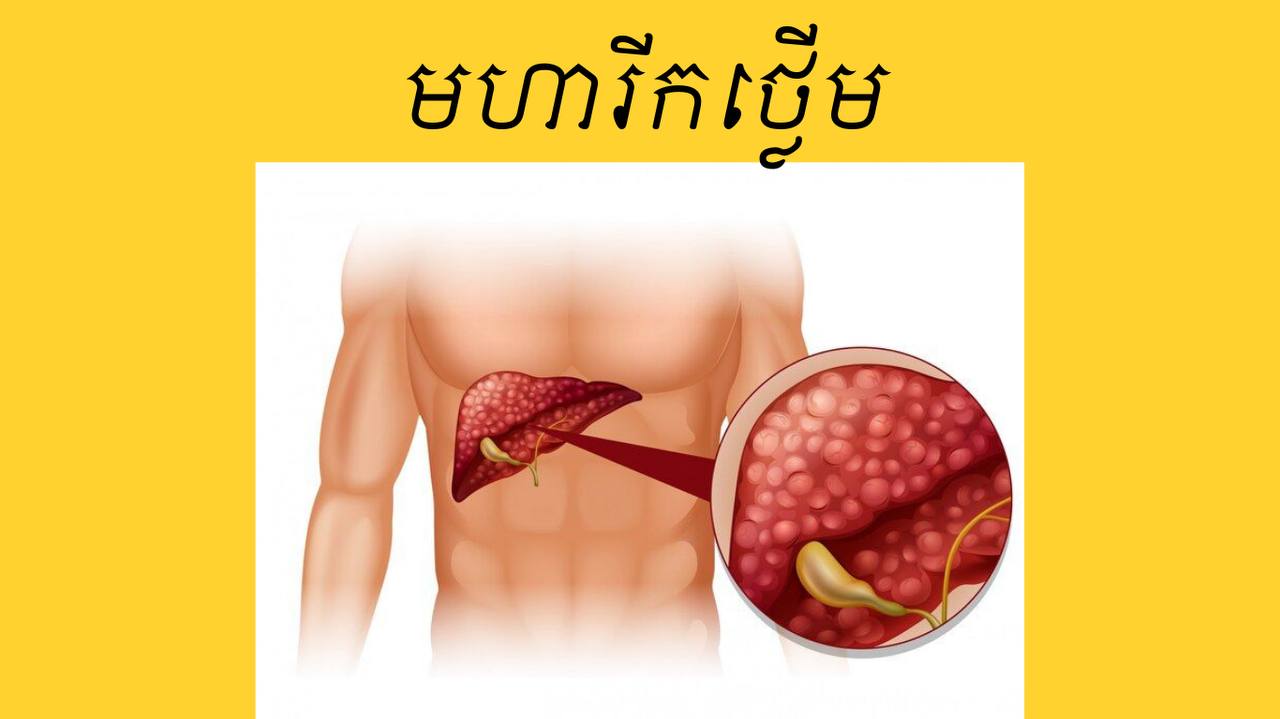Diseases January 15th, 2025
Liver cancer

Liver cancer, also known as hepatocellular carcinoma (HCC), is a type of cancer that originates in the liver. It is one of the leading causes of cancer-related deaths worldwide. Liver cancer can be primary (originating in the liver) or secondary (metastatic, spreading from other organs). Here’s a comprehensive overview of liver cancer, including its causes, symptoms, diagnosis, treatment, and prevention:
Types of Liver Cancer
- Primary Liver Cancer:
- Hepatocellular Carcinoma (HCC): The most common type, originating in hepatocytes (liver cells).
- Cholangiocarcinoma (Bile Duct Cancer): Arises from the bile ducts within the liver.
- Angiosarcoma and Hemangiosarcoma: Rare cancers starting in the blood vessels of the liver.
- Secondary (Metastatic) Liver Cancer: Cancer that spreads to the liver from other organs (e.g., colon, breast, lung).
Causes and Risk Factors
The exact cause of liver cancer is unknown, but several risk factors increase the likelihood of developing it:
- Chronic Viral Hepatitis: Hepatitis B virus (HBV) and hepatitis C virus (HCV) are the leading causes of liver cancer.
- Cirrhosis: Scarring of the liver due to long-term damage (e.g., from alcohol, hepatitis, or fatty liver disease).
- Non-Alcoholic Fatty Liver Disease (NAFLD): Linked to obesity, diabetes, and metabolic syndrome.
- Alcohol Abuse: Long-term heavy drinking can lead to cirrhosis and liver cancer.
- Aflatoxin Exposure: A toxin produced by mold on poorly stored grains and nuts.
- Genetic Conditions: Hemochromatosis (iron overload) or Wilson’s disease (copper overload).
- Other Factors: Smoking, anabolic steroid use, and exposure to certain chemicals.
Symptoms
In the early stages, liver cancer often has no symptoms. As the disease progresses, symptoms may include:
- Abdominal pain or swelling (especially in the upper right side).
- Unexplained weight loss.
- Loss of appetite.
- Nausea and vomiting.
- Jaundice (yellowing of the skin and eyes).
- Fatigue.
- Dark urine and pale stools.
- Itchy skin.
Diagnosis
Liver cancer is diagnosed through a combination of tests:
- Blood Tests: Alpha-fetoprotein (AFP): Elevated levels may indicate liver cancer.
- Liver function tests (LFTs): Assess liver health.
- Imaging Tests: Ultrasound: Often the first test to detect liver abnormalities. CT Scan or MRI: Provides detailed images of the liver.
- Angiography: Evaluates blood flow to the liver.
- Biopsy: A small sample of liver tissue is removed and examined under a microscope.
- Laparoscopy: A minimally invasive procedure to examine the liver directly.
Staging
Liver cancer is staged based on the size and number of tumors, spread to nearby lymph nodes, and metastasis to other organs. The Barcelona Clinic Liver Cancer (BCLC) staging system is commonly used:
- Stage 0 (Very Early): Single tumor <2 cm.
- Stage A (Early): Single tumor or up to 3 tumors <3 cm.
- Stage B (Intermediate): Multiple tumors without vascular invasion.
- Stage C (Advanced): Tumors with vascular invasion or spread to lymph nodes.
- Stage D (End-Stage): Severe liver dysfunction or metastasis to distant organs.
Treatment
Treatment depends on the stage of the cancer, liver function, and overall health. Options include:
1. Surgical Treatments
- Liver Resection: Removal of the tumor and surrounding tissue.
- Liver Transplant: Replacement of the diseased liver with a healthy donor liver.
2. Localized Therapies
- Ablation: Destroying tumors with heat (RFA), cold (cryoablation), or alcohol (ethanol injection).
- Transarterial Chemoembolization (TACE): Delivering chemotherapy directly to the tumor.
- Radioembolization (Yttrium-90): Using radioactive beads to target tumors.
3. Radiation Therapy
- Stereotactic Body Radiation Therapy (SBRT): Precise, high-dose radiation.
- Proton Beam Therapy: Minimizes damage to surrounding tissues.
4. Systemic Treatments
- Targeted Therapy: Drugs like sorafenib, lenvatinib, or regorafenib.
- Immunotherapy: Drugs like atezolizumab + bevacizumab or nivolumab.
- Chemotherapy: Less commonly used, but may be combined with other treatments.
5. Palliative Care
Focuses on relieving symptoms and improving quality of life for advanced-stage patients.
Prevention
- Vaccination: Get vaccinated against hepatitis B.
- Treat Hepatitis: Seek treatment for hepatitis B or C to prevent cirrhosis.
- Limit Alcohol: Avoid excessive alcohol consumption.
- Healthy Lifestyle: Maintain a healthy weight, exercise, and eat a balanced diet.
- Avoid Toxins: Reduce exposure to aflatoxins and harmful chemicals.
- Regular Screening: For high-risk individuals (e.g., those with cirrhosis or chronic hepatitis).
Prognosis
The prognosis for liver cancer depends on the stage at diagnosis, liver function, and treatment response. Early detection significantly improves survival rates. However, advanced liver cancer has a poorer prognosis.
If you or a loved one is at risk for liver cancer or experiencing symptoms, consult a healthcare provider for evaluation and early intervention. Early diagnosis and treatment are critical for improving outcomes.
- Tags:
- Liver Cancer, មហារីកថ្លើម



